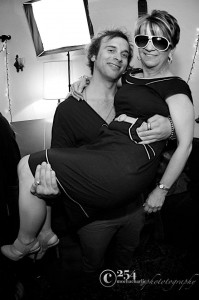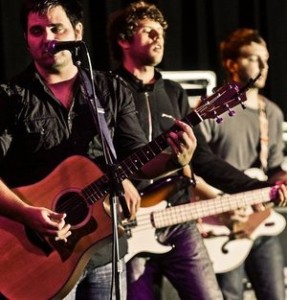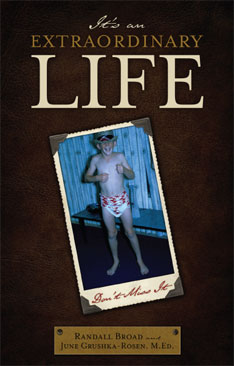For the second half of this two part series, I interviewed Robin Fairbanks, A&R at Seattle’s Setlist Music Solutions. Robin is an amazing music industry resource who has developed, managed and promoted many bands and solo artists across the country.
She has also done just about everything there else is to do professionally in the music industry, including being an on-air radio personality and doing radio sales, online radio programming, original music sales, full-service advertising and PR, booking, and event promotion. In this interview, Robin gives indie artists her perspective and advice on how to be successful in the music industry.
Robin is so engaging, we spent two full hours together talking together, so this is a long interview, but I think it’s chock full of important information.
You may also be interesting in reading Part I in this series, an interview with Robin’s colleague at Setlist Music, Elizabeth O’Keefe.
Q0: Tell me a little about yourself, Robin.
Robin: I’ve spent 40 years in one capacity or another in the music industry. I think I came out of the womb with a contract in my hand. I may have negotiated my mother’s epidural. It all began in Ohio in 1972 at the age of 17 when I booked the rock band ‘Merry Christmas’ for our prom, which escalated into other schools calling me for that band and then other bands calling me for high school gigs. I still curse them and thank them (depending on the day), for starting me in this crazy business.
I was booking clubs before I was old enough to even be in them, with 2-3 bands working each weekend and me picking up the payout at each club and paying the bands out. Even my math teacher wanted in on the action. He had a wedding band that I started booking. Weddings were lucrative and I enjoyed taking money from my teacher. I was a poor math student and I wasn’t getting A’s – but I was getting commission.
By the time I was 18, I was the first female and the youngest to be licensed with the “A. F. of M.” as a booker. In those days, you had to have contracts and a license. It was a little like the Sopranos – the “suits” would show up unannounced, and ask to see a contract. I made the standard 10-15% and traded bands with bookers and promoters in Ohio, Pennsylvania, New York, and Maryland.
Ohio had some great players, bands with names like Willis The Zipper, I Don’t Care, and Tender Butt. No one wanted to list that band’s name, which is tame by today’s standards, in their newspaper ad or marquee. Some of these bands are still working to this day. Unfortunately, back then, most of them couldn’t afford studio time, unless they knew a lawyer “wanna-be rock star” who would fund the recording of a 45 RPM record.
I booked for 5 years until I was 21.
“We knew we could make better ads and jingles and get them much better results with our radio ads.”
After that, I went into radio for a while, for some of the top radio stations in Ohio and Pennsylvania, when payola was the norm. I found I was making more money booking bands, so I went back to booking and did that until I got married and became “respectable.” Ha! That just meant I went into another side of the business where I spent time working for several boutique production studios in Ohio.
I worked directly with clients, ad agencies and radio/TV reps and their clients, to create cohesive campaigns, original jingles, music beds, and radio/TV commercials. My job was to scan the radio listening for commercials that could use help. Since we had close relationships with all the radio reps, we worked with them to convince their clients to become ours. We knew we could make better ads and jingles and get them much better results with our radio ads.
“Sometimes, we only brought one jingle spec back to the client. We knew when we had a winner.”
I loved meeting with the prospective clients on site, and spending time learning everything I could about their business. At three o’clock the lyrics writer, the music director and I would sit down and get to work. We knew when the jingle was good – and then we used to say “We can go home, now.” Sometimes, we only brought one jingle spec back to the client. We knew when we had a winner.
In 1999, I came to Seattle and started working at KMPS FM/KYCW AM radio. Then, I left radio and music for a little while in 2000 and went on tour as a professional comedienne touring around the US and playing the local club and casino circuit. In 2008 I went back into music and managed a local Seattle rock band called Shotty for three years. That year I also helped the ailing Seattle Peace Concert Series by co-producing “Hendrix Fest” with 1000+ in attendance in beautiful Magnuson Park featuring original members of Heart, Leon Hendrix Experience, Shotty, and Randy Hansen.
I’ve also helped shape the sound of internet radio start-up Seattle Night Out Radio (now Seattle Wave Radio), working as the music director for the “Rock” channel. I still work with them as an advisor and writer, doing interviews and occasional artist bookings for their events.
I’d say I’m best known as the former personal manager for 3 1/2 years of Seattle rock band Fox and The Law, but I’ve worked for, and continue to work for, scores of other notable bands, solo artists, and venues in many capacities.
Q1: What do you do at Setlist?
Robin: Currently I can be found providing private artist consultations, press, PR and some booking services. I do the upfront work. My strength is getting the artist to the next level of clubs, producers, festivals, tour, and ultimately label ready – whether that is signing with a label or creating their own. I educate artists about the music business and how to work professionally within it.
I’m not currently managing an artist, but as a manager, I’m the coat of many colors, the wearer of many hats … Friend… Adviser… Protector… Cheerleader…Shopper… …Booker… Psychiatrist… Disciplinarian… Wrangler… Merch Girl… Roadie… Publicist… Gatekeeper… I AM MANAGER… hear me roar!
“Macklemore was a 14 year overnight success.”
I’ve always said, “I wish I had someone who woke up every day thinking of ways to make me successful!” I want that for myself! It can be a thankless job, so you need to have a thick skin. It’s not for everyone. If you want to manage an artist to make a lot of money, be prepared to be in it for the long haul – and with more time investment than return. Most bands break up before you see a return. I’ve seen more bands break up after releasing a highly anticipated album or touring together. They say it takes at least 3 years to break a band. It can take many more. Macklemore was a 14 year overnight success.
At Setlist Music, we’re a boutique management company that does manage acts – but we’re also a consulting music company offering a la carte services that a manager or a label would provide to their signed artists. We help artists who may not be ready or active enough for a personal manager or label interest, but need some of the services a manager, booking agent, or publicist would offer.
 For example we offer a comprehensive band consultation starting at $149. We will review a band’s website, images, social media, PR – everything. We offer a one-on-one in person consult (or Skype, if out of town) where we comb over everything, and we attend a live show, if possible. Then we meet back up to provide them with a comprehensive roadmap of what’s needed, the cost, and how to start. Bands can hire us to do some of it or hire anyone they prefer to do those services or do it on their own. I do a lot of PR for bands on a contract basis. These are steps that can help an artist grow so eventually they can attract a solid manager, booking agent, and get press.
For example we offer a comprehensive band consultation starting at $149. We will review a band’s website, images, social media, PR – everything. We offer a one-on-one in person consult (or Skype, if out of town) where we comb over everything, and we attend a live show, if possible. Then we meet back up to provide them with a comprehensive roadmap of what’s needed, the cost, and how to start. Bands can hire us to do some of it or hire anyone they prefer to do those services or do it on their own. I do a lot of PR for bands on a contract basis. These are steps that can help an artist grow so eventually they can attract a solid manager, booking agent, and get press.
“Sometimes, artists are too close to their own project to see what’s needed and it’s good to get a fresh, outside, unbiased perspective.”
Sean Hensley (Setlist’s owner), Elizabeth O’Keefe, and I do the consult together or in teams of two. The artists we’ve consulted with have found it quite informative, and have put practices in place that we’ve suggested – and it’s working for them. Sometimes, artists are too close to their own project to see what’s needed and it’s good to get a fresh, outside, unbiased perspective.
Q2: What do you think are the biggest challenges indie musicians face today? What advice would you give them?
Robin: I received 2 emails just this week from bands who were looking for management. Sean [Hensley] and I must get a few emails a month about it. After viewing their sites, I could easily see they’re really not ready for management – there was little to manage. To add a manager, there needs to be something to manage, where it’s gotten to be more activity than the band can handle alone.
A large percentage of the artists who contact us seeking management in reality just want better gigs, producers, festivals, and press. What they need is help growing their fan base, fine tuning their website, better photos, putting out consistent and frequent quality content, a roadmap of what to do and how to do it.
Again, we have all the resources at SetList but our services come with a price. Nothing is free but we do have manageable payment options. Some bands back down once they find out you charge for a consult. I don’t know any artists who have a day job who would go to work and not expect to be paid. Why would I drive to meet you for an hour or two and spend my free time combing through all your content and creating a roadmap for success… for free?
“To add a manager, there needs to be something to manage, where it’s gotten to be more activity than the band can handle alone.”
Here’s the thing: if you can’t find $150 to invest in meeting with two entertainment veterans to help your career, your band is a hobby not a business. I learned the hard way not to give anything away for free anymore.
Artists have to realize that everybody needs to be paid for their services: photographers, web developers, videographers, producers… everyone. Everyone wants specialized skills for free. Don’t take advantage of someone’s talent. They, like you, are in the creative field and are trying to make ends meet. If they give you a freebie one time, still drop them some cash or take your next paying project to them.
Acknowledge and thank people who have helped you. A thank you goes a very long way! Don’t keep using people until all the free runs out and then move on to another free offer. It’s just not good business. Instead, find those who you gel with and work with them and cross promote. Champion one another. Anyone who knows me knows I’ve always preached that you need to build a team around you. It’s a family of creatives all working toward the greater good who will be with you through thick “and” thin. We all know it’s a rollercoaster ride out there and there will be a time when your manager or team will have to pull you out of the ditch and dust you off and get you back on track. Take care of those who take care of you and don’t expect them to always tell you what you want to hear. They’re there to guide you and wake up each day with your best interests at heart. You don’t need a “Yes” team. There are plenty of enablers out there (who your team should be protecting you from) who will tell you how great you are. Your team will keep you real and grounded. Remember, everything you get can just as easily be taken away.
“Management is like a marriage, you’ll be spending a lot of time together.”
 Management is like a marriage, you’ll be spending a lot of time together, and you’ll need to be active enough to afford the extra 15-20% cost of adding a manager. A band should have no extra debt that they’re digging out of, such as old contracts or recording debt, before the manager signs on. No one wants to sign on and have to dig their act out of a moneypit.
Management is like a marriage, you’ll be spending a lot of time together, and you’ll need to be active enough to afford the extra 15-20% cost of adding a manager. A band should have no extra debt that they’re digging out of, such as old contracts or recording debt, before the manager signs on. No one wants to sign on and have to dig their act out of a moneypit.
Seasoned managers are looking for bands that have been together for a while, where they’ve worked out the kinks of living and touring together. There’s less break-up chance if they’ve been together for five years or so. They should have a band agreement in place, a band fund, and van and instrument insurance, and an LLC created. Artists should treat their band as a business. Many bands are frankly looking for some guidance on how to move up to the next level.
“If you can’t find $150 to meet with two entertainment veterans to help your career, your band is a hobby not a business.”
 At Setlist, we have two different kinds of artists we work with. We have a smaller group of artists that we manage locally and regionally, and then we have a larger group of artists who we work with on an a la carte basis, but we don’t book them or manage them.
At Setlist, we have two different kinds of artists we work with. We have a smaller group of artists that we manage locally and regionally, and then we have a larger group of artists who we work with on an a la carte basis, but we don’t book them or manage them.
For the artists that we manage, each of us in the firm will take on one or two artists each. For artists that we work with on projects, we can work with a lot more, and they pay us up front for our services, or on an hourly basis or monthly.
Q4: What’s the most important advice you can give to an indie artist or band about getting booked for gigs and building a following?
Robin: Act professionally and put out the best content you can afford. Play like they paid $100 to see you and one day… they will! You never know who’s in the audience. You get better gigs when you can draw and are getting a buzz around your act. The reality is, clubs want draw. No matter how good the music is, it’s a business and bookers are looking to fill their rooms and sell booze. It’s just how it is.
“If you don’t have draw, then you need to sit down and figure out what you can do better.”
If you have neither draw nor buzz yet, then you have to work smaller clubs and build your fan base and do your due diligence. Don’t lie about your draw, because you won’t be asked back. If you don’t have draw, then you need to sit down and figure out what you can do better. Collaborate with established bands to help to build draw and cross promote, but don’t rely on anyone else to build your draw. You have to put in the necessary work. If you have great music, people are responding to it and you put on a great show, they will tell others about you – but you still have to put in the work.
My pet peeve is contact information. If there is no contact information, or if I have to dig around online really hard to find it – that’s a turn off. Please list the name of the person to contact, their relationship to the band, and an email address.
Upon booking, send your press info to the club contact for promotion. Make sure you’ve “Liked” the clubs Facebook site. Ask them to “Like” yours so they can see you’re promoting the gig.
Drop some posters or handbills at the club if you’re postering or if the club requires it. Make sure you ask to put up the posters yourself. Don’t hand them off to a bartender or they might not ever get put up and printing isn’t cheap.
Don’t send out constant posts and invites to all of your gigs on Facebook. I know I get annoyed. If I’ve Liked your page or I’m your friend, I’ll see when you post your show and if I want to share it I will, or if I’m interested or available I’ll come. I also read music magazines, and get their posts and tweets so I know what’s going on. I’m inundated with requests and invites.
Make sure the booker gives you an itinerary ahead of time with your load-in, set times, and split percentage. Know what to expect at the end of the night, and who is paying you out. Count your money in front of who paid you out before stepping away. Same with pre-sale tickets. Even if you have 200, count them right then and there.
Be early on show day and, unless you’re a touring band and have to get on the road, watch all the bands. I think it’s so rude to not “Friend” other bands and support them.
Get on and off stage quickly.
“Don’t drink all the beer that’s for several bands and give it to your friends just because you assumed it was for you since it was in the green room.”
Tip your bartender or wait staff. Don’t take over advantage of free drink offers. Don’t drink all the beer that’s for several bands and give it to your friends just because you assumed it was for you since it was in the green room. The headliner might not even have arrived yet.
Keep your guest list to a minimum – one guest per member. It cuts everybody’s take at the end of the night. Thank the soundman and door guys. Don’t be a pain, the word will get back to the booker. Send the booker a thank you email and tell them you look forward to coming back.
Q5: How would you compare Setlist with other Seattle agencies or labels?
Robin: There are a lot of independent band managers, and some may be friends with the band and looking after their best interest- but they aren’t versed on other things like how to approach radio, music writers or bloggers, or bookers. They pester them.
“You have to learn each individual media, like radio or press – how to write the release, when and how to call and follow up.”
You have to learn each individual media, like radio or press – how to write the release, when and how to call and follow up. We are very hands on. We have a lot of experience in all different aspects of the music business, and we see the big picture. We can figure out what an artist really needs, and where they should put their money to make the most improvement so they can reach their goals.
Q5: How are you compensated?
Robin: We get a standard percentage when we act as bookers, but we give artists a bid for other services on a project basis. We will give them payment options to create a professional website and a professional social media presence.
We have the Motown model – we have a family of artists that we nurture and grow. We create a presence for an artist that looks cohesive. Artists can always go find an independent manager, website developer, or whatever. We start with what is most important and make sure that the artist has those things first. Lay the foundation, and then start building.
Q5: What has changed in the music industry?
Robin: There’s so little money in management anymore. It’s more of a heart thing. Managers have day jobs to pay the bills until their artist is at a national level. What has really changed is that artists don’t want to sign with a label anymore. More artists want to retain all of their rights to everything. Macklemore is a great example of this, or look at Amanda Palmer, although for a long time her label sat on a lot of her stuff. They have distributors, but now the distributor works for them. Some bands will have a lead who has a really good business sense, and they will understand how the business model works, and why this important. That’s why artists need to take the time to go to seminars on how the music industry really works, or come to consultants like us who can explain things to them and offer them advice.
There are people out there who are unscrupulous and will take a band’s money, so you have to educate yourself.
Q6: Tell me more about doing PR for artists, Robin.
 Robin: I’m really hands-on with all the artists I work with. I’m fortunate to be in a position where I can pick and choose what projects I want to work on, with people I like and whose music I like.
Robin: I’m really hands-on with all the artists I work with. I’m fortunate to be in a position where I can pick and choose what projects I want to work on, with people I like and whose music I like.
I’m always looking for an angle, something that people don’t know, something that will set them apart. There are a million bands sending stories to the press every day. I spend a lot of time keeping the artists up to date when I do PR for them. The last couple of campaigns I did were record releases. I charge a flat fee, using my contacts and the band’s contacts. I put everything together and send it out or even hand carry CDs to my contacts. If they hire me, at least bands know they will get a response back.
“I’m always looking for an angle, something that people don’t know, something that will set them apart. There are a million bands sending stories to the press every day.”
I write the press release – usually three different versions, one electronic, one for print and one for radio. Usually most cities have a local-only show, like here in Seattle it’s KEXP, KISS, The End, and I promote nothing but local like Seattle Wave Radio and NWCZ Radio. Press people work really far in advance. If it’s just a CD release party, I might just work for a few months with a band, for a single release and then a CD release, it probably would be more like three months or longer. I promote to radio, bloggers, print – everywhere.
Q7: What do you think is the best way to promote your music if you are an indie artist?
Robin: I think here in Seattle, you pretty much have to get on KEXP. There is a certain way to box your CD up, package it, and get it to them. There’s probably a local radio station in every town, and you have to know how to get on that radio station, you have to have the contacts who know how to get it to them. You’re not going to get commercial airplay until you get on the Billboard charts, but what most bands want is local play. As far as print goes, I will find the angle, and then send it out to see if they pick up the story.
For the band Eclectic Approach, I focused on the fact that they got on Jimmy Kimmel, which they won through a contest at SXSW. For the second part of their PR, I focused on the story of their lead singer, who had a near death experience that involved Jason Mraz. The lead singer got swine flu, but he kept pushing through shows. He ended up in a medically-induced coma the day they were supposed to open for Mraz at The Crocodile. My angle was that Jason Mraz probably had no idea why his opening act didn’t show up. The lead singer survived, and now he volunteers doing speaking engagements for Northwest Medical.

I also created an anti-bullying campaign with the band Run From Cover. They travel to schools and businesses speaking about bullying. I created the concept and written words at the end of their video, their assembly program one sheet, and their press release.
For every band, I try to find the angle that will catch peoples’ interest. Sometimes people are too close to their own project, they need someone to look at it from the outside and figure out what’s a good human interest story. What’s going to make someone even open the email? The headline has to be well-crafted. The headline I wrote for Eclectic Approach was “Life, Death and Jason Mraz” – people opened that up because they were intrigued by the headline, they wanted to know more.
Q8: Do you think the Sub Pop [Seattle label famous for representing a lot of the grunge bands of the 1980s] model works today?
Robin: I don’t know what the Sub Pop model is anymore. They have a lot of older artists who have been with them for some time, but they tend to sign artists they just really like.
Q8: What bands in Seattle do you think is making the new music industry work for them successfully?
 Robin: I love Kris Orlowski. I think what he does, and what Macklemore has done from the very beginning, is take their time and put out quality content. They don’t put anything (recordings, video) out unless it’s really good.
Robin: I love Kris Orlowski. I think what he does, and what Macklemore has done from the very beginning, is take their time and put out quality content. They don’t put anything (recordings, video) out unless it’s really good.
They release singles with a matching video. If you’re going to get your songs to the right people, you better make sure they’re really good. Not two songs that are really good out of 13. You have to have the discipline to write, write, write. If you write enough of them, you will find enough to put an album together without a bunch of filler. A lot of bands write songs that are filler. If you write 25-30 songs, you might have 12-13 gems. Heist has hit after hit after hit on it – a lot of songs were written in order for there to be that many hit songs. That’s a lot of songs written. I like a “single, single, single, then EP, then an album” model.
Another thing: write lyrics that are from your heart about your life and your feelings, something relevant in the world that other people connect to. Some bands sings like they are just reciting the lyrics. There needs to be feeling behind the song when you sing it, a story behind it. Don’t just write words, make me feel something… Anything.
“There needs to be feeling behind the song when you sing it, a story behind it.”
The music business is tough. Seattle is known right now for its singer-songwriter, Americana, roots music, hip hop and EDM. It’s hip to be what I call “weird and beard,” wear the boots and the skirt or the beanie. I don’t look like a Northwest hipster. I didn’t know how big of a deal a beard oil problem was. People would see me interacting with the band and say “Which one is yours?” and I would say “All of them!” I’m maternal, I don’t mind. If you’re taking care of someone and especially if you’re older, it’s going to happen.
Q9: Why do you think bands should hire an agency like Setlist that offers a cafeteria style menu of services?
Robin: I think bands should be writing music and perfecting their live show, and they should hire people with specialized skills to help grow their band.
“The manager model is really going away, and more bands have to pay for the things they either don’t have the skills or time to do themselves.”
Managers don’t want to work for nothing anymore – or 15% of nothing – because artists don’t get paid as much anymore. The manager model is really going away and more bands have to pay a la carte for the things they either don’t have the skills or time to do themselves.
Q10: How have you seen the industry change the most?
Robin: A lot of bands are making their own records in home studios. Bands spend good money and create a good record at a reputable studio that gives them some traction, and then they go home thinking they are now engineers and can duplicate the experience of that producer on their next project. I don’t like to see the quality drop. If you want to license your music, it has to be top quality, because you’re compettion with national artists. If the quality isn’t there, you won’t even be considered.
Q11: How do you go beyond a certain level, get out of Seattle and get beyond that?
Robin: Some bands are just playing the same clubs over and over. When you start touring out of your area, that’s when you find out just how good you are – when it’s not just your friends and family. It’s good to be written about here, but the real test is taking your show on the road. It can be brutal, and that’s why some bands prefer to stay in their own area, surrounded by a supportive fan base.
“When you start touring out of your area, that’s when you find out just how good you are – when it’s not just your friends and family.”
Q12: What comes next for you?
Robin: I’m not sure. Every artist I ever worked with happened by accident. I was out to see someone else and then was blown away by some random band and didn’t want anyone else to have them. I’m not sure if and when I will ever feel that again. It’s like love, it could be just around the corner or never come around again. We’ll see.
I prefer to work in the background and be known for the good work I do and have done for the music industry.
I’m that person you see sitting in the movie theater watching every last credit while the ushers are cleaning up. I put myself in that group of passionate creatives, toiling behind the scenes to make an artist or project successful. I like to stay to see if I know any names. Same with reading liner notes in a CD, I want to read who are some of the forces behind the project. My credit was, ahem, accidentally left off an EP once by a band. They didn’t think it was a big deal…. it was.
“I put myself in that group of passionate creatives, toiling behind the scenes to make an artist or project successful.”
Sometimes when there is little to no money, it’s those small successes that you work so hard on that are your reward.
Thank you so much for all this great advice and information, Robin. More about Setlist Music Solutions can be found on their website.
Please feel free to leave your feedback on this interview, on your experiences with being a musician, manager or booker in the comments section below.







2 comments
What a truly insightful interview! I’ve learned a lot just by reading through the many aspects covered ..your a la carte pricing approach lets bands sample your service for a reasonable fee until you both decide that you trust each other and are a” good fit ” .(wish you were based in Ireland…)